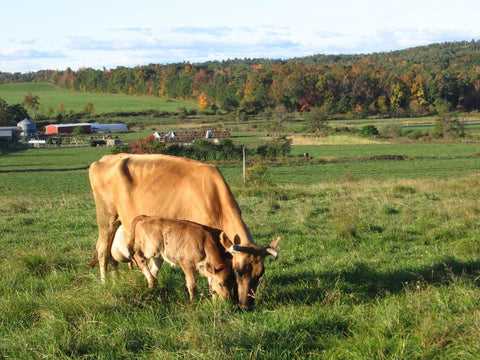


Attention!
Due to the COVID-19 outbreak we are no longer accepting or fulfilling NATIONAL orders for the time being.
If you are looking for New York City Grocery Delivery please click here.



Due to the COVID-19 outbreak we are no longer accepting or fulfilling NATIONAL orders for the time being.
If you are looking for New York City Grocery Delivery please click here.

At Hawthorne Valley Farm, we've been dedicated to producing high quality food for more than 35 years. Our biodynamic farming practices reflect our commitment to protecting the health of the earth and all who live on it, and our education and outreach programs strive to raise awareness of the social, ecological, and economic importance of agriculture in our daily lives.
Hawthorne Valley Farm, like all farms, is part of the global food system and part of our regional foodshed. Through conscious collaboration, we’re working to build a new food paradigm predicated on providing nutritious food to all people in our foodshed, preserving farmland and farmland wildlife habitats, making land accessible for sustainable agriculture, enhancing regional economic vitality, and fostering connections between people and the living land.
Our vision statement reads, "nurturing the land that nurtures us" and we take this statement seriously. Our goals are: to establish a true Biodynamic Farm; to connect children and adults with the land and the food that nourishes them; and to provide agricultural products of the highest quality. Through the farm’s products, we hope to open an educational dialogue about our environment, our economy, and ourselves.
Adding value to our farm products through our Dairy, Farm Store, Bakery, and Sauerkraut Cellar allows us to grow our farm in a balanced way–with less stress on the land, plants and animals. The income from these "value-added" activities coupled with the greater profit margin from direct marketing (as described in the next paragraph) permits the farm to maintain a reasonable and "human" scale. Thus we are able to avoid the monoculturally-based, industrial-scale, factory-farming methods which are prevalent in the country today.
Local, regional, direct marketing of our products through the Farm Store, the Green Market in NYC, and the CSA program allows for a social interaction that brings people onto the farm and helps to develop long lasting connections. Further, providing our farm products to the other branches of HVA such as the Visiting Students Program and the School allows us to develop deeper relationships with their participants as well.
Finally, our relationship with the on-farm learning and vocational training programs bring many young people onto the farm. It is our hope that the ongoing dialogue amongst us all will contribute to an increased awareness of the importance of sustainable living and working practices.
Modern, conventional agriculture, or rather agribusiness, is a highly consolidated industry focused on producing large quantities of cheap food. There are far fewer professional farmers today and, in fact, there are more people imprisoned in the United States than there are people engaged in farming as a vocation. Food scares around tainted food happen frequently, we experience the environmental degradation caused through the use of synthetic fertilizers and pesticides, and traditional and rural cultures, both in the United States and abroad, are being decimated, as local and regional food systems are "modernized". Sadly the health of our children in particular is being compromised and the effects on the next generation extend beyond obesity to dramatically increased cases of allergic and nervous disorders.
These disturbing facts beg nuanced and serious consideration as to the correct course of action moving into the future. Who will steward the many beautiful and potentially productive acres of land? Who will provide nourishing food for us in ten, fifteen, or fifty years? How can we establish among young individuals a strong and fundamental trust in their environment and food? How can we provide for global food needs in a way that does not harm the environment or exploit communities?
In order to create a context in which to answer these questions, it is imperative for agriculture to reclaim its place as a foundational element of our culture, economic activity, and society. It is up to us, food producers and eaters alike, to make this happen.
In Columbia County, NY, where Hawthorne Valley Farm is located, we are fortunate to have a burgeoning group of aspiring and practicing young farmers. However, for this next generation to thrive, we must address questions of land ownership, land tenure, and succession. These discussions are already happening. But it is up to us, farmers and eaters alike, to come together to develop innovative solutions and to create a shared vision for agriculture and community — perhaps one based on deeper connections to the living land and to one another. Will you join the conversation?
No products found in this collection.